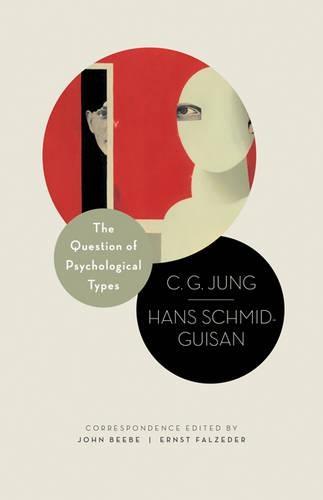Full Product Details
Author: C. G. Jung ,
Hans Schmid-Guisan ,
John Beebe ,
Ernst Falzeder
Publisher: Princeton University Press
Imprint: Princeton University Press
Volume: 11
Dimensions:
Width: 14.00cm
, Height: 2.30cm
, Length: 21.60cm
Weight: 0.454kg
ISBN: 9780691155616
ISBN 10: 0691155615
Pages: 200
Publication Date: 23 December 2012
Audience:
College/higher education
,
Professional and scholarly
,
Tertiary & Higher Education
,
Professional & Vocational
Format: Hardback
Publisher's Status: Active
Availability: Temporarily unavailable

The supplier advises that this item is temporarily unavailable. It will be ordered for you and placed on backorder. Once it does come back in stock, we will ship it out to you.
Language: English
Reviews
The English text is a pleasure to read, with plenty of clarifying notes. Readers will enjoy the informality of the exchange, its intellectual depth, and the humanity of Jung and Schmid-Guisan. This important addition to the history of modern psychology will engage and inform interested nonspecialists. -- E. James Lieberman Library Journal The Question of Psychological Types is a welcome addition to anyone who would seek to understand the framework of psychological types better in its philosophical and historical context. The publishers have done a good job of putting the book into a good, clean format and have equipped the text with a generous, even lavish, amount of footnotes. Readers who will want to know more about the practical application of typology and the types will not find much to interest them here, but to readers who want to be acquainted with the historical process that spawned Psychological Types, this volume is quite simply a mandatory read. Celebrity Types Beebe and Falzeder provide a fascinating, scientifically important look into the development of Jung's seminal work on psychological types. Unlike works that stress how one can understand the typology and the implications of being a 'certain type,' this volume illuminates the early development, discussion, and refinement of the ideas... A must-read for scholars and enthusiasts of Jung and an excellent 'reader' for understanding the scientific enterprise prior to the development print and online journals and formal review procedures. Choice
The English text is a pleasure to read, with plenty of clarifying notes. Readers will enjoy the informality of the exchange, its intellectual depth, and the humanity of Jung and Schmid-Guisan. This important addition to the history of modern psychology will engage and inform interested nonspecialists. --E. James Lieberman, Library Journal The Question of Psychological Types is a welcome addition to anyone who would seek to understand the framework of psychological types better in its philosophical and historical context. The publishers have done a good job of putting the book into a good, clean format and have equipped the text with a generous, even lavish, amount of footnotes. Readers who will want to know more about the practical application of typology and the types will not find much to interest them here, but to readers who want to be acquainted with the historical process that spawned Psychological Types, this volume is quite simply a mandatory read. --Celebrity Types Beebe and Falzeder provide a fascinating, scientifically important look into the development of Jung's seminal work on psychological types. Unlike works that stress how one can understand the typology and the implications of being a 'certain type,' this volume illuminates the early development, discussion, and refinement of the ideas... A must-read for scholars and enthusiasts of Jung and an excellent 'reader' for understanding the scientific enterprise prior to the development print and online journals and formal review procedures. --Choice We now have the opportunity to read and study this very significant correspondence with the addition of the excellent introduction and annotations which the co-editors have produced and have our knowledge and understanding of Jung's psychological types greatly deepened, expanded and enriched. --Peter Kenney, Journal of Analytical Psychology
The English text is a pleasure to read, with plenty of clarifying notes. Readers will enjoy the informality of the exchange, its intellectual depth, and the humanity of Jung and Schmid-Guisan. This important addition to the history of modern psychology will engage and inform interested nonspecialists. -- E. James Lieberman Library Journal
Author Information
John Beebe is the author of Integrity in Depth and past president of the C. G. Jung Institute of San Francisco. Ernst Falzeder is the author of Psychoanalytic Filiations: Mapping the Psychoanalytic Movement and senior research scholar at University College London.




